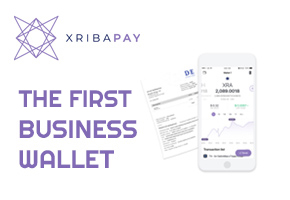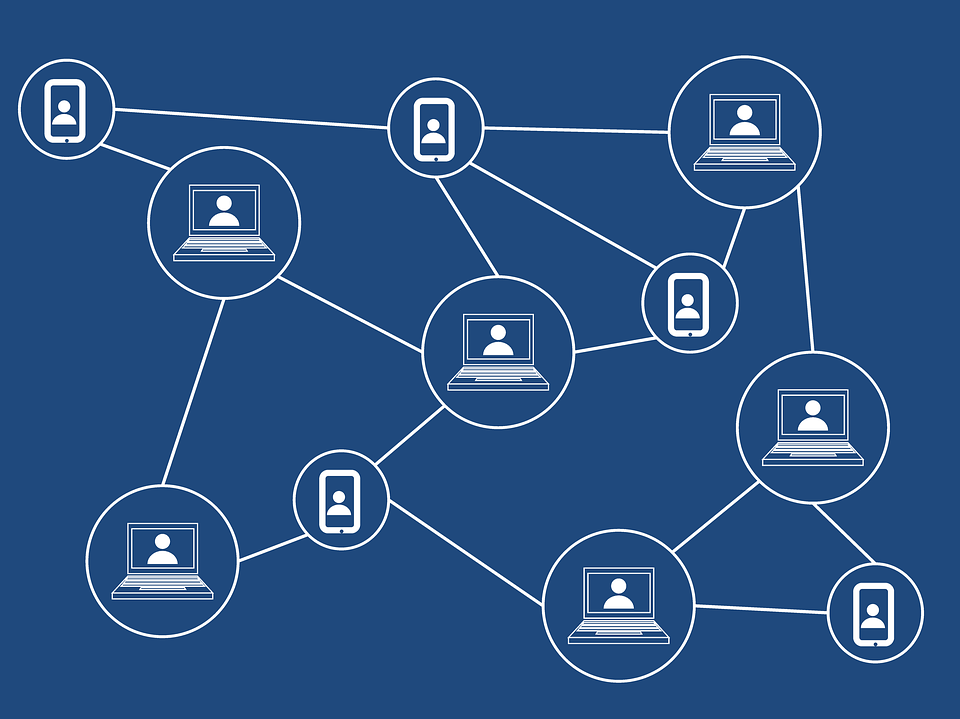It’s ironic that over the last few years cryptocurrencies have received so much media coverage. When in actuality, it’s the underlying technology that powers it, blockchain, that is far more interesting.
Blockchain technology has the power to transform the way the world interacts with information.
What is the blockchain, and how does it work?
The blockchain is a decentralised digital ledger that can be programmed to record any information of value ranging from patient details to financial transactions. Instead of being on a single server, it’s distributed across different nodes of a network.
Once the data is stored it is virtually impossible to be retroactively modified.
The information entered into the database is replicated in real time so all the nodes can verify the validity of the information entered. It gets rid of the need for a central authority to hold sensitive information in order for two or more people to make a transaction.
In the current system, the only authority that Cs. verify and guarantee any transaction are the banks. in a blockchain, the intermediary is replaced by a communication protocol able to certify, approve and archive the transactions that take place within the “chain”, without the need of a bank.
Once verified by the “network”, the transactions are stored in the ledger. All the blocks subsequent to the one involved in the first modification must be changed as well as the consent of the majority of the network, making every transaction virtually impossible to tamper with once it’s been created.
Beyond the cryptocurrencies
The blockchain is often confused with bitcoin as it was and still is synonymous with the cryptocurrency it powers.
In 1991 it was the first database protected by cryptography. The first distribution occurred as we know it today in 2008 thanks to a person or group operating under the pseudonym of Satoshi Nakatomo.
The first business wallet for fiat and cryptocurrency payments

In 2009 the blockchain became an indispensable component of bitcoin, of which it is still the accounting book for all transactions carried out with this cryptocurrency. The blockchain is already a part of our daily lives.
Below I’ll share with you some examples of how it’s being applied in different industry sectors.
Automotive
PSA Group and Renault have already invested in blockchain technology. They have began developing a decentralized digital maintenance book that keeps track of all the information on the history of their cars.
Data including:
- Mileage
- Repairs
- Accidents
is all automatically recorded in the blockchain. This system will help to prevent fraud that afflicts the used car market.
Having a reliable and up-to-date car history is vital for owners and dealers alike. This allows both parties to buy and sell cars easier and with a greater peace of mind.
Furthermore, the car market is a market for which it is often necessary to certify ownership. For example, in Italy, in my country of origin, the current centralized process (managed through PRA – Public Register of Automobiles) is complex and onerous.
By integrating blockchain technology into the PRA, anyone could access and verify data in real time whilst incurring significantly lower costs.
Notaries (Real estate, inheritance and insurance)
Transcribing information from these sectors in the current public register in Italy is done by intermediaries, notaries and real estate agents. In England, for example, where I currently live, this isn’t the case.
A person can:
- Buy or sell a house,
- Write a will,
- Start a business,
- Buy or sell a car
without ever needing a 3rd party.
It’s necessary to use the notary for acts that must produce effects in different countries (contracts, powers of attorney, company documentation such as deeds of incorporation and by-laws). A protocol based on the blockchain could be used to certify and secure transactions of this type without the need for any intermediary allowing the seller and buyer to fill in the public register themselves.
Of course I’m not saying that professional intermediaries are useless, on the contrary, they can help to guarantee the quality of the blockchain as they have knowledge of the industry. But at the same time, the blockchain can help the safe development of transactions, where security is a factor of growth.
By being able to link all documents relating to a deceased person’s assets through the blockchain, testamentary executives can access a more reliable and verifiable data pool than current systems.
Insurance
The use of blockchain in the insurance sector has the potential to automate a number of processes, such as complaint management, thus reducing all associated costs. How? By using smart contracts.
Smart contracts are automated contracts that work in a similar way to written agreements. In fact, they constitute agreements with legal validity based on agreed terms and conditions.
The main difference between smart and traditional contracts is that they are electronically programmed and based on distributed registers, which allows automatic activation of certain actions – such as a payment – as soon as the agreed conditions are met, without the need for independent checks or manual intervention.
This technology would make claims handling more efficient, significantly reducing the time and cost it takes to do so. Another example of how blockchain technology can speed up processes is in the travel insurance sector.
If a flight is delayed by a certain amount of time all passing affected by it are entitled to compensation. The process of actually doing this is arduous. Blockchain technology can help by accessing airport data, which then triggers automatic compensation for the affected passengers when he/she arrives at their destination.
Healthcare
Healthcare is a highly regulated sector, patient information is some of the most highly protected data on the planet.
One of the main drawbacks of the current system is that different healthcare institutions aren’t able to work together and safely share information between each other due to security concerns. Being able to do this would allow different healthcare professionals e.g. a psychologist with a cardiologist to work together to provide a better standard of care for patients.
Doctors would be able to make more accurate diagnoses and as a result, give patients a better chance of a full recovery.
Pooling all patient data into the blockchain would allow the data to be accessed by anyone who has a need and is authorised without compromising data security.
Accountancy
The transparency of company financials is a hot topic as this information is highly sensitive and plays a pivotal role in the success or failure of a company. However, If a company’s finances were public record and incorruptible it would change the landscape of business worldwide.
Investors can be more confident when choosing a company to invest in, and businesses can enter contracts with other businesses knowing that there aren’t any nasty surprises in store.
In fact, if invoices worldwide were registered in the blockchain, we could in one fell swoop solve a large number of financial fraud related problems. At the very least financial regulators could have more hell to check the transactions of all companies.
This is vision of Xriba, which uses artificial intelligence to automate transactions and store them in the blockchain. In a recent report in Forbes magazine, the World Economic Forum argued that decentralized payment technologies could transform companies that operate in the money transfer sector, a sector that has struggled to innovate over the last century.
The blockchain makes it possible to create smoother, safer and faster transactions between people and businesses, at affordable rates.
XribaPay, a part of the Xriba protocol, is the first payment platform that will allow companies to make financial transactions in cryptocurrency and fiat currency, reconciling the payment in their accounts and registering all the data in the blockchain.
Be prepared
Love it or hate it, the blockchain is one of the 10 technologies destined to change the future of society. If you’re an entrepreneur, I think it’s worthwhile to dedicate some time to researching this technology more.
This can help you to take advantage of potentially lucrative business opportunities in different sectors.
It’s still early days. There is still much to improve, develop, understand. But the change will happen faster than we expect. Once it happens, those who have embraced the technology will be best placed to benefit from it.
